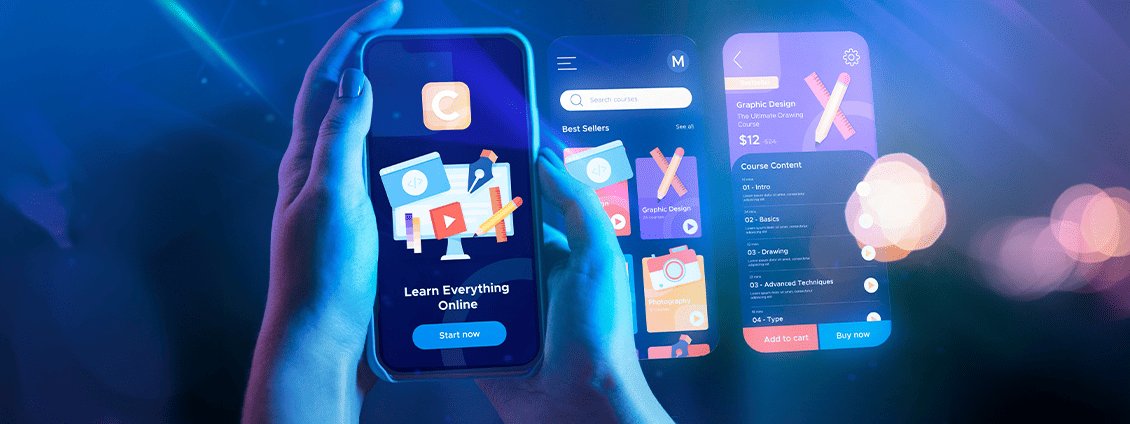- Solutions
Our solutions
Digital solutions combining strategy, technology, automation and people.
Technology advisory
Navigate the fast-changing world
Cloud engineering
Transformational change at scale and speed
Data solutions
Realise the untapped potential of data
AI and machine learning
Leverage your data assets
Application engineering
Optimise and grow your digital investment
Maintenance and support
End-to-end application management
Business process solutions
Manage business processes to reduce operating costs
Quality solutions
Independent testing for your systems and software
Digital experience platforms
Redesign your digital assets for the optimal customer experience
- Industries
Industries
We provide solutions tailored to your sector to assist you in identifying opportunities, realising value and opening up new markets.
Banking
Delivering next-gen banking solutions that drive growth
Healthcare
Patient empowerment, lifesciences, and pharma
Retail
Functional and emotional customer experiences online and in-store
Travel
Airlines, online travel giants, niche disruptors
Media and publishing
Content consumption for the tech-driven audience
Hi-tech and IOT
Real-time information and operational agility and flexibility to respond to market changes
Logistics and supply chain
Reimagine a supply chain that is more flexible and resilient to change
Education
Create an exciting and engaging digital experience for students and departments
Insurance
Streamline operations, expedite claims, and unlock new possibilities
- Our thinking
Our thinking
The latest updates to help future-focused organisations on the issues that matter most in business.
News
Keep up to date with company news and announcements at NashTech
Insights
The latest expertise and thought leadership from the NashTech and our clients
Resources
Expert guidance on everything from complex technological issues to current trends
Digital Leadership Report
Explore insights from the latest world's largest and longest-running study on technology leadership
- Case studies
- About us
About us
Find out what makes us who we are
Leadership
The diverse leadership team at NashTech
Nash Squared
A global professional services organisation with three key areas of focus
Vietnam 360°
Experience a 360 degree all-encompassing virtual tour of NashTech’s Vietnam offices
ESG
Discover our environmental, social and governance commitments
Diversity, equality and inclusion
Making diversity, equality and inclusion an integral part of our culture
Our locations
Discover our network of global offices, centres of excellence and innovation
- English
POC vs MVP: What's the difference?

When it comes to product development, Proof of Concept (POC) and Minimum Viable Product (MVP) are both essential stages of the process. Although sometimes used interchangeably, each term has its own meaning and is a vital step towards successfully launching a product.
But what is the difference between POC and MVP? The following guide will show you the differences between these two processes and when you should consider each.
What is Proof of Concept (POC)?
Let’s say that you are a technology company looking to develop a new mobile app. You’ve carried out some initial research and have come up with an idea that you believe can generate revenue and improve your customer engagement. The next stage is to test the validity of your idea with a POC, or Proof of Concept.
But what exactly is a POC?
A POC is a small-scale visualisation that tests the validity of your idea in the real world. It’s a way of evaluating your concept and demonstrating that it is feasible before you spend time and resources developing a prototype.
Creating a POC is an essential step in the development of any new idea. It enables you to prove that building your proposed mobile app is achievable. It also provides an idea of the time scales involved to execute the project.
Crucially, a POC allows you to demonstrate your idea to colleagues and decision-makers. It helps them to see the potential of your idea and how your app will contribute to the strategic goals of the business.
What is Minimal Viable Product (MVP)?
An MVP or Minimal Viable Product is a developed version of your app with core functionality. It has enough features and functionality to attract early adopters so that you can validate your product with the minimum amount of effort.
It allows you to control time and resources that might otherwise be used to build a product that is unsuccessful.
You may choose to develop and release a minimal viable product so that you can launch your app to market quickly. An MVP also allows you to deal with real users before scaling up your project. This means that you can test how well the app resonates with your target market and work out what areas of the app may need improvement. It also allows you to plan and minimise your time and resources.
What is the difference between POC and MVP?
A proof of concept often involves a small exercise to test the real-world potential of an incomplete idea. This isn’t about delivering the idea, but demonstrating whether it is feasible. It should be used in the early stages when you first have an instinct about an idea. A proof of concept shows if a product, feature or system can be developed.
Following these processes will help you to validate your ideas in an efficient and cost-conscientious way and bring value to your end-users as quickly and smartly as possible.
Read more about what an MVP is and, importantly, what it isn’t in our minimum viable product: what it is and what it isn’t article.
Expert Technology Solutions
Discover a range of expert technology solutions from NashTech. From technology advisory, business process solutions and application services, to data analytics and much more.
Partner with us for end-to-end technology services that improve user experience and drive growth.
Suggested articles

The art of human-AI collaboration: A case study in model improvement
For over 16 years, NashTech has been a trusted partner, providing data management solutions that have fuelled the exponential growth of our client’s online shopping platform. The approach has...

From rising above adversity to riding the wave of digital transformation in the education sector
Explore how NashTech help Trinity College London ride the wave of digital transformation in the education sector

Migrating and modernising the virtual learning environment to AWS for an enhanced experience
The migrated and modernised Moodle infrastructure means that The Open University can now take advantage of cloud benefits.
We help you understand your technology journey, navigate the complex world of data, digitise business process or provide a seamless user experience
- Topics:


